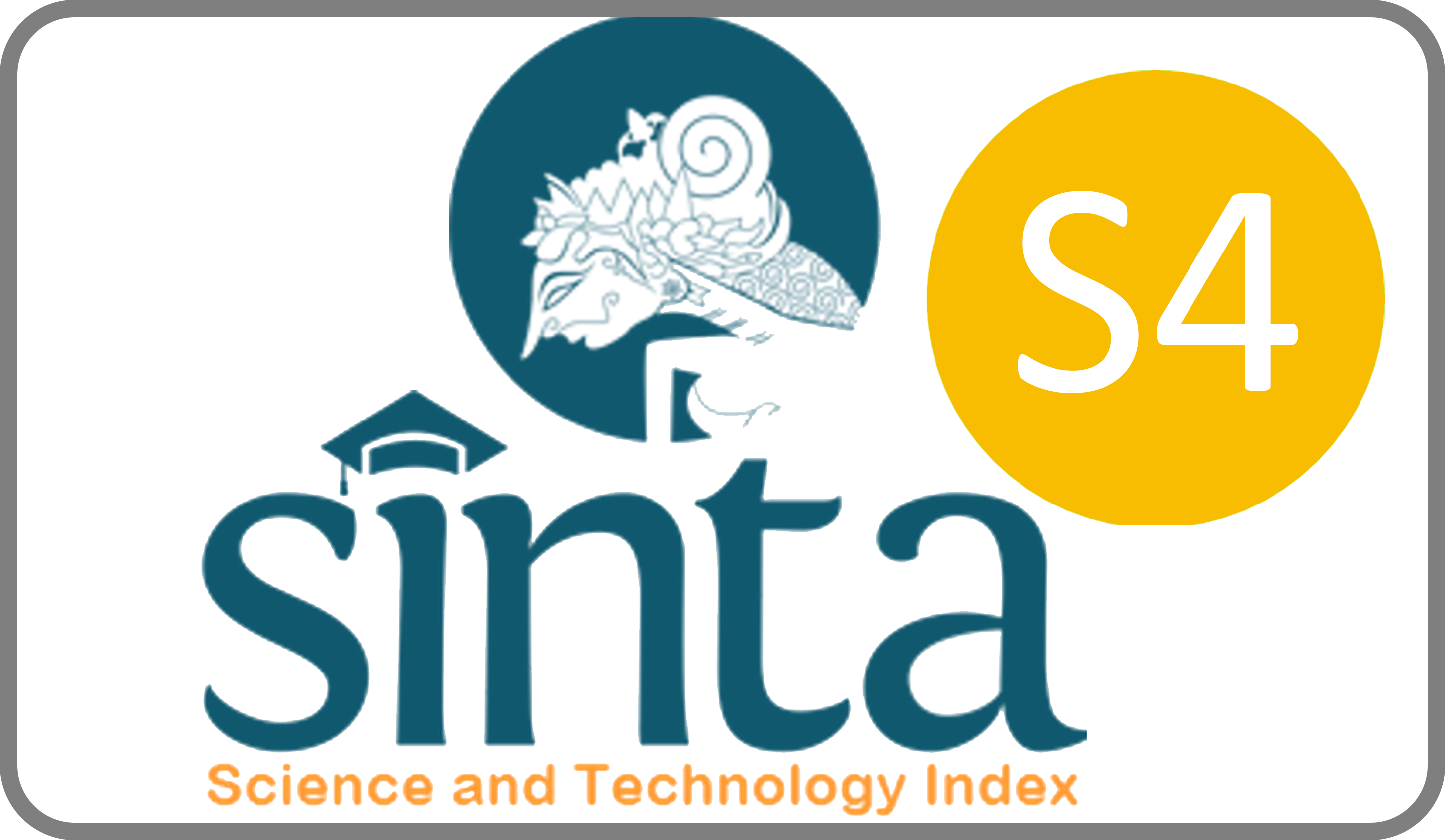IMPROVING THE ACCOUNTABILITY OF SMEs IN MALANG CITY: A STRATEGIC STEP TOWARDS GLOBAL COMPETITIVENESS
Downloads
The low level of financial literacy among MSMEs directly impacts poor accountability practices. Without a sufficient understanding of basic accounting concepts, MSMEs struggle to record transactions systematically and accurately. Their ability to prepare comprehensive financial statements is crucial not only for meeting internal requirements but also for enhancing competitiveness on a global scale. To address the issues related to accountability practices, educational efforts on balance sheets, income statements, and the preparation of application-based financial reports are essential. The community service activity titled "Enhancing Accountability of Micro, Small, and Medium Enterprises in Malang City to Support Global Competitiveness" was conducted on Sunday, July 14, 2024, at the Malang Creative Center, involving 22 MSMEs that are members of the Malang Small Traders Association (Paguyuban Seduluran Sak Lawase). This service activity included pre-tests and post-tests, as well as presentations on how to prepare balance sheets and income statements, and an introduction to accounting applications. All participants showed an increase in knowledge, with post-test scores averaging at least 80. These results indicate that participants have grasped how to prepare balance sheets and income statements, demonstrating that the training materials were effective in enhancing participants' knowledge.
Amelia, Amelia. 2022. “Pengaruh Literasi Keuangan, Sikap Keuangan, Dan Kepribadian Terhadap Perilaku Pengelolaan Keuangan Pada Pelaku UMKM Kelurahan Gedong, Jakarta Timur.” Jurnal Maksipreneur: Manajemen, Koperasi, Dan Entrepreneurship 12, no. 1: 129–43.
Arianti, Baiq Fitri. 2020. “Pengaruh Pendapatan Dan Perilaku Keuangan Terhadap Literasi Keuangan Melalui Keputusan Berinvestasi Sebagai Variabel Intervening.” Jurnal Akuntansi 10, no. 1: 13–36.
Coram, Paul J. 2018. “Discussion of Accounting Practitioners’ Attitudes toward Accounting Harmonization: Adoption of IFRS for SMEs in Italy.” Journal of International Accounting Research 17, no. 2: 123–26.
Cultrera, Loredana, and Xavier Brédart. 2016. “Bankruptcy Prediction: The Case of Belgian SMEs.” Review of Accounting and Finance 15, no. 1: 101–19.
Erari, Anita. 2024. “Peningkatan Kinerja Keuangan Usaha Mikro Kecil Dan Menengah Melalui Literasi Keuangan, Penggunaan Teknologi, Dan Perilaku Keuangan.” Jurnal Ilmiah Edunomika 8, no. 2.
Girella, Laura, Stefano Zambon, and Paola Rossi. 2019. “Reporting on Sustainable Development: A Comparison of Three Italian Small and Medium‐sized Enterprises.” Corporate Social Responsibility and Environmental Management 26, no. 4: 981–96.
Hilmawati, Mei Ruli Ninin, and Rohmawati Kusumaningtias. 2021. “Inklusi Keuangan Dan Literasi Keuangan Terhadap Kinerja Dan Keberlangsungan Sektor Usaha Mikro Kecil Menengah.” Nominal: Barometer Riset Akuntansi Dan Manajemen 10. https://api.semanticscholar.org/CorpusID:236618112.
IS, Rekha, Sriram KV, and Sumukh Hungund. 2024. “MSME/SME Financial Literacy: A Systematic Literature Review and Bibliometric Analysis.” Journal of the Knowledge Economy, 1–28.
Jati, Hironnymus, Petrus Emanuel De Rosary, Apriana H J Fanggidae, and Reyner F Makatita. 2021. “The Importance of Financial Literacy and Technological Literacy for the Sustainability of the Culinary Business in Kota Kupang during the COVID-19 Pandemic.” International Journal of Economics, Business and Management Research 5, no. 01: 15–41.
Jatmiko, Bambang, UDIN Udin, Rini Raharti, Titi Laras, and Kholifah Fil Ardhi. 2021. “Strategies for MSMEs to Achieve Sustainable Competitive Advantage: The SWOT Analysis Method.” The Journal of Asian Finance, Economics and Business 8, no. 3: 505–15.
Khouroh, Umu, Achmad Sudiro, Mintarti Rahayu, and Nur Khusniyah Indrawati. 2020. “The Mediating Effect of Entrepreneurial Marketing in the Relationship Between Environmental Turbulence and Dynamic Capability with Sustainable Competitive Advantage: An Empirical Study in Indonesian MSMEs.” Management Science Letters 10, no. 3: 709–20.
Kurniawan, Moh Zaki, and M Boy Singgih Gitayuda. 2021. “Peran Inklusi Keuangan Pada Perkembangan UMKM Di Madura.” Ekonika : Jurnal Ekonomi Universitas Kadiri 6: 154–65.
Loho, Briando, Inggriani Elim, and Stanly Kho Walandouw. 2021. “Analisis Rasio Likuiditas, Solvabilitas, Aktivitas Dan Profitabilitas Untuk Menilai Kinerja Keuangan Pada PT. Tanto Intim Line.” Jurnal EMBA: Jurnal Riset Ekonomi, Manajemen, Bisnis Dan Akuntansi 9, no. 3: 1368–74.
Mawarsari, Margareth Anjani. 2023. “Tren Digitalisasi UMKM Di Indonesia 2023: Tantangan Dan Peluang.” Https://Dailysocial.Id/Post/Tren-Digitalisasi-Umkm-Di-Indonesia-2023-Tantangan-Dan-Peluang, April 6, 2023.
Shifa, Layinnatus, Meisyabela Ega Zahra, Fadilla Novitasari, Eka Yulianti, and Pungky Lela Saputri. 2025. “Literasi Keuangan Dan Finansial Teknologi Dalam Inklusi Keuangan Pada UMKM.” Neraca: Jurnal Ekonomi, Manajemen Dan Akuntansi 3, no. 4: 685–96.
Zarefar, Arumega, Vera Oktari, and Atika Zarefar. 2021. “Pengaruh Orientasi Kewirausahaan, Inovasi, Kemampuan Menyusun Laporan Keuangan Dan Literasi Keuangan Terhadap Kinerja UKM.” Kajian Akuntansi 22, no. 2: 148–61.
Copyright (c) 2025 Nitami Galih Pangesti, Prinintha Nanda Soemarsono, Izmi Dwira Eriani

This work is licensed under a Creative Commons Attribution-ShareAlike 4.0 International License.
JLM by Unair is licensed under a Creative Commons Attribution-ShareAlike 4.0 International License.
1. The journal allows the author to hold the copyright of the article without restrictions.
2. The journal allows the author(s) to retain publishing rights without restrictions
3. The legal formal aspect of journal publication accessibility refers to Creative Commons Attribution Share-Alike (CC BY-SA).
4. The Creative Commons Attribution Share-Alike (CC BY-SA) license allows re-distribution and re-use of a licensed work on the conditions that the creator is appropriately credited and that any derivative work is made available under "the same, similar or a compatible license”. Other than the conditions mentioned above, the editorial board is not responsible for copyright violation.


















